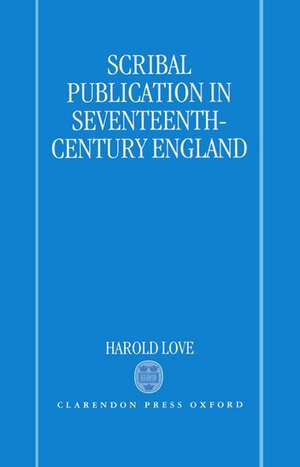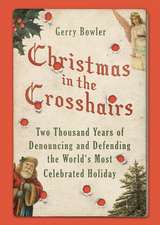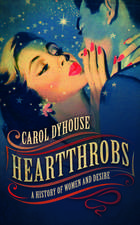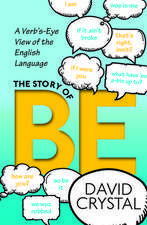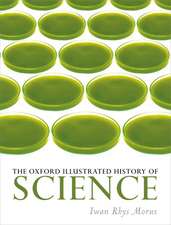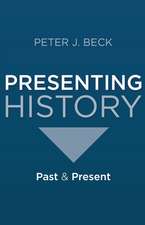Scribal Publication in Seventeenth-Century England
Autor Harold Loveen Limba Engleză Hardback – 20 mai 1993
Preț: 374.59 lei
Preț vechi: 540.65 lei
-31% Nou
Puncte Express: 562
Preț estimativ în valută:
71.70€ • 77.91$ • 60.27£
71.70€ • 77.91$ • 60.27£
Carte tipărită la comandă
Livrare economică 09-15 aprilie
Preluare comenzi: 021 569.72.76
Specificații
ISBN-13: 9780198112198
ISBN-10: 019811219X
Pagini: 390
Ilustrații: halftones, line diagrams
Dimensiuni: 145 x 225 x 27 mm
Greutate: 0.7 kg
Ediția:New.
Editura: Clarendon Press
Colecția Clarendon Press
Locul publicării:Oxford, United Kingdom
ISBN-10: 019811219X
Pagini: 390
Ilustrații: halftones, line diagrams
Dimensiuni: 145 x 225 x 27 mm
Greutate: 0.7 kg
Ediția:New.
Editura: Clarendon Press
Colecția Clarendon Press
Locul publicării:Oxford, United Kingdom
Recenzii
...this important book, which both describes and analyses one of the almost forgotten phenomena of publishing history. Dr Love's findings and ideas will be of great significance. Editors have long recognised that they cannot ignore the manuscript sources. Dr Love has now shown them how they must analyse and use them to gain a fuller understanding of the texts of these important historical and literary documents. Few readers of this book... will come away from it without learning something, and most readers, like your reviewer, will learn a very great deal indeed. It is ... warmly recommended.'John Feather, Loughborough University, Rare Books Newsletter 45
This is a bold and timely book. ... a broad and illuminating account of the context from which much writing in this period grew. It demonstrates the need for a full scholarly edition of the anti-court political satire written in the reigns of James I and Charles I, to parallel the Yale edition of^ Poems of Affairs of State. It offers a methodology, a definition of terms - and a sense of how much still remains to be done on the seventeenth-century manuscript archive.'Times Literary Supplement
There is far more in this astonishingly rich book than I can possibly rehearse here, I can only point to a reading of Mac Flecknoe in full awareness of its scribal publication ... a memorable put-down of Jonathan Goldberg, some dazzling pages on 'Swift, Script and Print'... new and persuasive reflections on 'Editing Scribally Published Texts'. Scribal publication was the preferred form of publication for Donne, King, Carew, Marvell, Rochester, and Dorset. This learned book will encourage scholars to be more aware of the practice.'Keith Walker, University College, London, Modern Language Review, 25, 1995
...a fascinating book, full of ideas and theories about the distinctions between scribal and printed publications....to be read by as many musicologists and music biographers as possible.
It is a particularly auspicious time,..for the appearance of Harold Love's synthesizing monograaph, Scribal Publication in Seventeenth-Century England...It's synthesis of textual theory and its exploration of the material conditions of literary culture in the seven-teenth century are valuable indeed, as are its notes and bibliography...The book is a significant contribution to the study of literrary practice in a transitional age, before the triumph of print was complete.
Harold Love's Scribal Publications in Seventeenth-Century England does what most scholars wish they could and what few actually accomplish. By envisioning manuscript artifacts not as grist for print editions but rather as evidence of past activity, Love opens up a new arena for inquiry. ...wider use of the strategies he deploys will provide us with "an understanding" that both scribal transmissions and "reading" were activities "that w[ere] always communal as well as individual".
Love's book is rich in detailed discussions of writings, techniques and processes. His wide scholarly reading is matched by sensitivity both in his interpretations and in his theorizing.
This is a bold and timely book. ... a broad and illuminating account of the context from which much writing in this period grew. It demonstrates the need for a full scholarly edition of the anti-court political satire written in the reigns of James I and Charles I, to parallel the Yale edition of^ Poems of Affairs of State. It offers a methodology, a definition of terms - and a sense of how much still remains to be done on the seventeenth-century manuscript archive.'Times Literary Supplement
There is far more in this astonishingly rich book than I can possibly rehearse here, I can only point to a reading of Mac Flecknoe in full awareness of its scribal publication ... a memorable put-down of Jonathan Goldberg, some dazzling pages on 'Swift, Script and Print'... new and persuasive reflections on 'Editing Scribally Published Texts'. Scribal publication was the preferred form of publication for Donne, King, Carew, Marvell, Rochester, and Dorset. This learned book will encourage scholars to be more aware of the practice.'Keith Walker, University College, London, Modern Language Review, 25, 1995
...a fascinating book, full of ideas and theories about the distinctions between scribal and printed publications....to be read by as many musicologists and music biographers as possible.
It is a particularly auspicious time,..for the appearance of Harold Love's synthesizing monograaph, Scribal Publication in Seventeenth-Century England...It's synthesis of textual theory and its exploration of the material conditions of literary culture in the seven-teenth century are valuable indeed, as are its notes and bibliography...The book is a significant contribution to the study of literrary practice in a transitional age, before the triumph of print was complete.
Harold Love's Scribal Publications in Seventeenth-Century England does what most scholars wish they could and what few actually accomplish. By envisioning manuscript artifacts not as grist for print editions but rather as evidence of past activity, Love opens up a new arena for inquiry. ...wider use of the strategies he deploys will provide us with "an understanding" that both scribal transmissions and "reading" were activities "that w[ere] always communal as well as individual".
Love's book is rich in detailed discussions of writings, techniques and processes. His wide scholarly reading is matched by sensitivity both in his interpretations and in his theorizing.
